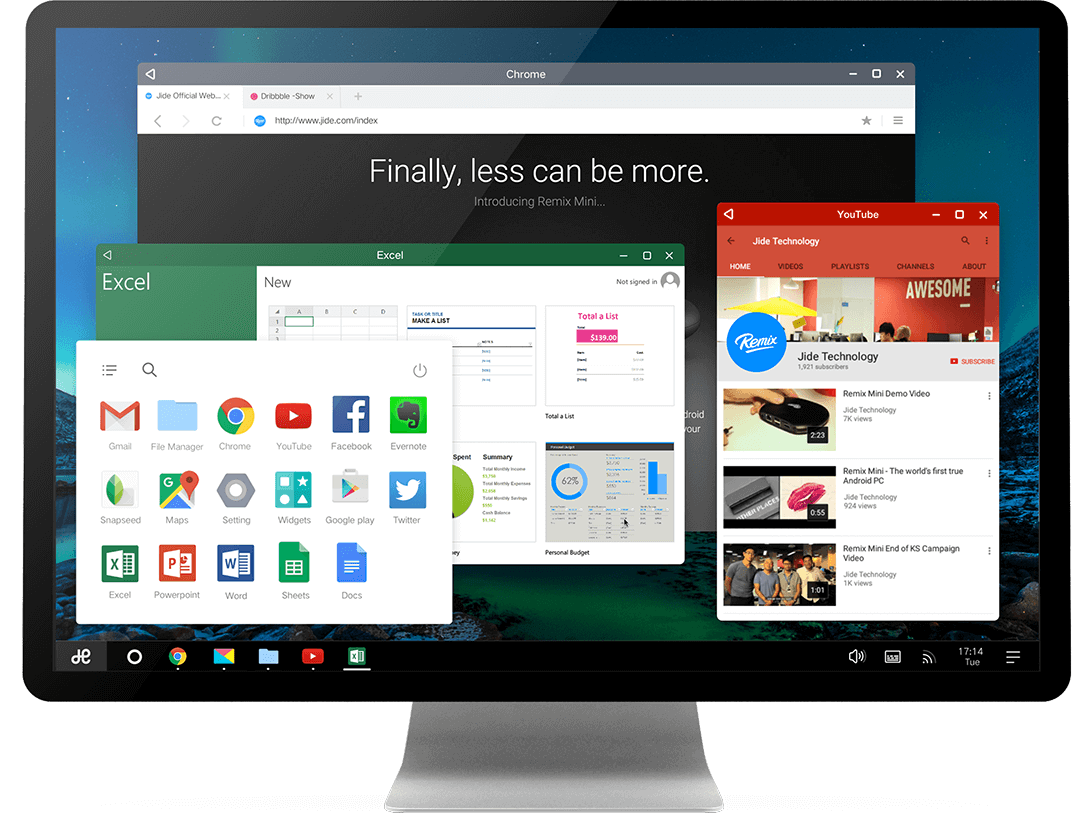A company called Jide has been working on a desktop-optimized fork of Android for a little over a year now. After Kickstarting a tablet running its custom software in March 2015 and later following with a small set-top box, the company now plans to release its Remix OS for free for anyone to install and use on an x86 computer.
Remix OS brings PC productivity features such as multiple floating windows, advanced file manager, and true mouse and keyboard support. It has a start menu where users can access installed programs, and a notification tray that swipes in from the side.
The Alpha release of Remix OS was actually released last month, but with the new public Beta coming on March 1, the company is bringing a substantial amount of improvements and bug fixes. Chief among them is adding support for 32-bit machines, which means you'll be able to repurpose that old laptop or PC to run a productivity-oriented version of Android.
Other new features include a new hard drive installer that allows for dual-booting of Remix OS with your other main operating system, and OTA updates, allowing Jide to release updates that you can download over the internet and install without losing data.

The a wealth of apps available for Android open up the potential of Remix OS in a meaningful way that Chrome OS extensions and apps can't match at this point. But there's still one key feature that's missing from Remix OS for PC: the Google Play Store. The company says it's currently in talks with Google for certification to have official access to the Google Play Store and Services – in the meantime you can still sideload them onto your Remix OS device.
Another thing worth keeping in mind is that the user experience varies greatly from app to app depending if they've been designed to run only on phones or phones and tablets. If it's the former apps may not play as well unless you keep the window down to a phone-like shape and size.
Last week we reported on another company that's working on a solution to repurpose old PCs, only using Chrome OS instead of Android.